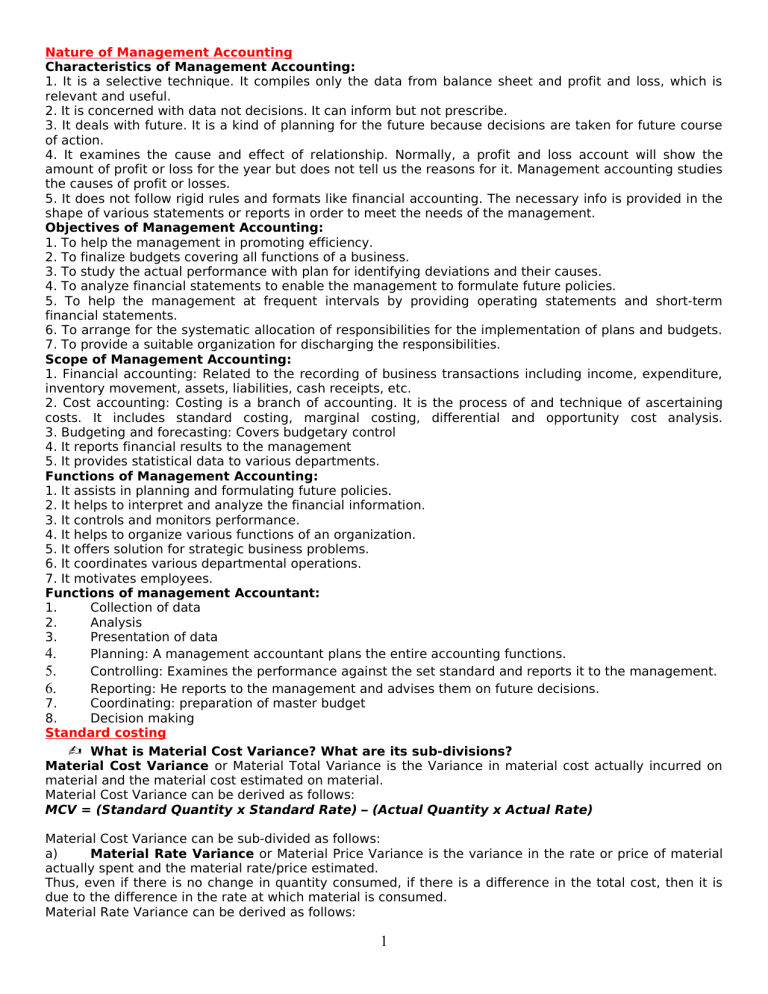
This represents a pivot in thought and action, perhaps one that was long overdue. At IMA, we have been championing the need for finance and accounting professionals to move beyond the compliance mindset to engage as full business partners and as future-focused strategic planners who use data to anticipate the future. It is this future-focused orientation that makes management accountants so valuable to their organizations, and I believe 2022 is the year when their skills will be best utilized and recognized. In explaining the theoretical implications of this study, core gaps in the literature were underlined (Section “Implications of this study”), while the limitations of this study were acknowledged in Section “Limitations of the study”.
Globalisation
According to Porter [72], strategy involves developing appropriate tools that enable a firm to analyse and determine its position in a competitive market. Thus, a firm selects suitable strategies that enables it compete more effectively over its rivals. To effectively do that, a firm needs to collect competitor accounting information. The importance of giving due attention to competitor accounting has been underlined in the literature (e.g. [11, 17, 58]).
An Examination of Ethical Values of Management Accountants
CFOs are responding in kind with investment in DE&I initiatives to combat income inequality and work on sustainability reporting standards. These activities are toward the ultimate goal of building sustainable value for our businesses, our stakeholders, and the global community. Though many hoped 2021 would be a year of full recovery from COVID, the reality has been more complex.
Strategic investment decision making practices: A contextual approach
Business owners and managers could make incorrect decisions or inferences from these forecasts, creating serious repercussions for the business. If you want to take your number-crunching job to a higher level, management accounting might be a good fit for you. Remember, you’ll need at least an undergraduate degree and may need to start as a CPA or staff accountant. After a few years in the industry, you’ll be able to earn a designation that can help you work your way up the corporate ladder and command a higher salary.
Finally, the Corona pandemic, which remains a global crisis, has exerted unprecedent global economic damage. Organisations are facing daunting challenges as a result of the Corona pandemic and are still seeking ways to successfully navigate these challenges. Future research should illuminate what strategic management accounting practices organisations are endorsing in the effort to effectively navigate the Corona-crisis-induced challenges. A systematic review approach (e.g. [5, 39, 81]) is used in this research on the topic of strategic management accounting.

Alabdullah [3] offers evidence that adds support to the insights in the aforementioned studies [57, 58]. In a study that explored the Jordanian service sector, Alabdullah [3] found that strategic management accounting enables performance in the service sector in Jordan. If strategic management accounting is effectively implemented, that will enable optimal strategic decision-making and ultimately improve organisational performance. Within the strategic management accounting literature, brand valuation is the third element of the strategic decision-making technique. In the view of Cescon et al. [11], brand valuation enables organisations to understand market reputation trends over time and potential implications for marketing executives and strategic accounting.
- This text is very easily divided (or reordered) into modules to suit different teaching objectives.
- The most significant limitation was that many of the chapters rely on a single theoretical perspective.
- Meanwhile, the accounting industry has endured dramatic shifts since the collapse of Enron and WorldCom, causing a renewed focus on ethical behavior in accounting.
- In particular, comprehensive analyses in the context of management accounting are still rare.
- Could possibly be condensed but could be easily adapted to content coverage in the course.
- In other words, the more the perceived environmental uncertainty, the higher the usage of the strategic pricing feature of the strategic decision-making SMA component.
This chapter showed how management control and inter‐organizational relationships can be viewed from a breadth of different theoretical perspectives including transaction cost economics, agency theory, actor‐network theory, and industrial network approaches. Management accounting may require businesses to operate under specific constraints. Constraints represent specific guidelines or policies that limit the financial expenditures of a company or its division and departments. Constraints include budgets, petty cash accounts and authorized purchase orders by owners or directors.
Grounded on the substance that effective use of the SMA techniques would improve organisational performance, immense research effort has focused on how organisations can effectively align the SMA usage towards achieving desired performance improvement. Premised in that theoretical domain, this study examined existing literature on the contingency factors of competitive intensity, market turbulence, formalisation, decentralisation and organisational strategy and SMA usage. Cumulative evidence obtained from the review reporting and analyzing the income statement of literature reinforces the need for organisations to pay particular attention to their operational environment in their use of SMA techniques. In other words, what works for an organisation would depend on the organisational dynamics, internal, as well as external. For example, formalisation may work for some but not for some, as decentralisation could work for some but not for some. Similarly, the utility of SMA techniques would hinge on the competitive intensity and market turbulence features of an organisation.
As mandatory regulations related to reporting on and assurance of sustainability data begin to take hold, now is the time for CPAs in a variety of roles to position themselves to take advantage. Leaders at private and newly public companies are optimistic about growth opportunities, although many view the pivotal role that artificial intelligence plays to be a double-edged sword. Even as the climate for diversity, equity and inclusion remains volatile, the near- and longer-term impacts of DEI on the accounting profession amplify shared accountability. To address that concern, steps taken in this research to validate the articles incorporated into this research include rigor of conduct and strength of evidence by cross-referencing, as well as undertaking a duplicate check (e.g. [76, 81]).
